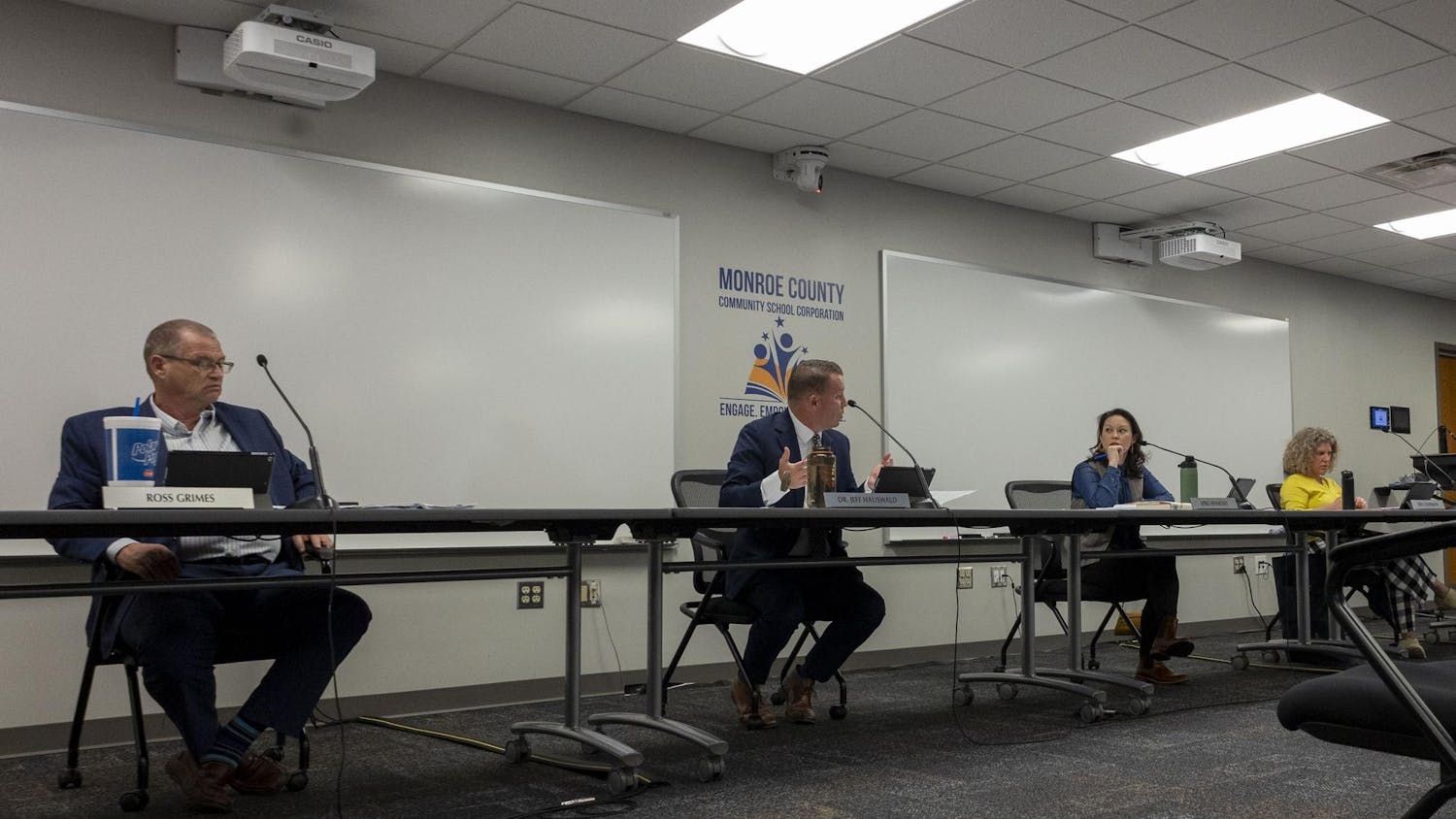At Nick’s English Hut on Kirkwood Avenue, employee Hayden Frasier sat eating a sandwich and some fries.
Frasier, 25, is a lifelong resident of Bloomington — where his parents still live — but now he’s renting a house in Ellettsville. He owns and pays for his car, which he uses to commute to and from work.
He started at Nick’s working for $7.50 an hour, but his wage has been increased to $8.50 an hour. He still needs some help from his ?parents in order to get by.
New proposed legislation, Senate Bills 41 and 160, has been introduced in the Indiana General Assembly this year that addresses the state’s current minimum wage laws. SB 41, which was authored by Sen. Karen Tallian, D-Portage, would increase the state minimum wage to $10.10, effective July 1. SB 160, which was authored by Sen. Frank Mrvan, D-Hammond, would use a longer timeline. Effective June 30, SB 160 would increase the minimum wage to $8.50 an hour and would increase it to $10.00 per hour effective June 30, 2016.
“I hate to say that Indiana is not in the forefront of helping our workers,” Mrvan said. “I think it’s our duty to keep up with the rest of the country. I think it’s good for the economy, and I think it’s good for the people.”
Indiana’s minimum wage has been set at $7.25 since it was raised in July 2009. The federal minimum wage is also $7.25 per hour.
Linda Gales, president of the Communications Workers of America union chapter that is based out of IU, offered comments on the proposed increase of the minimum wage.
“My opinion is that it should be raised, but not by almost $3 per hour,” Gales said. “Having said that, between minimum wage jobs out of necessity becoming full-time jobs for some and the definition of full-time having been decreased by several hours, without consistent overtime it would be very difficult for anyone to be able to support themselves working a minimum wage hourly job.”
There is a different minimum wage for tipped employees in Indiana, which are defined as any employees that make more than $30 per month from tips, or $2.13 per hour. Indiana has the lowest minimum wage for tipped employees in the country, a ranking that it shares with 16 other states.
Dani Graf works at Mother Bear’s Pizza and lives off her income as a server.
“I think the minimum wage should be $10,” Graf said. “It’s impossible to live on minimum wage to support yourself.”
She said some people have to get roommates or are forced to break the law in order to be able to afford living.
Bronti McClellan, another server who works at Cafe Pizzeria and who supports herself with a tipped employee wage, simultaneously attends IU and Ivy Tech part-time.
“It’s extremely hard,” McClellan said. “It’s hard to buy food from (any place) other than work. If it’s not in the budget, then I can’t buy it. Rent before food.”
According to the U.S. Department of Labor’s Bureau of Labor Statistics, there are approximately 3,301,000 people in the United States who earn the federal minimum wage.
In Indiana, of the 1,731,000 people working at an hourly rate, 108,000 of them are paid the state minimum wage or less. This equates to about 6.2 percent of the Indiana workers being paid an hourly wage that are being paid ?minimum wage.
The general manager at Penn Station on Indiana Avenue, Billy Banard, said it is difficult to live in Bloomington with the high cost of living.
“You can’t get anything on minimum wage,” Banard said. “You work a full 40 hours, you still won’t have enough to cover rent.” He added that half the money earned is typically applied to rent.
A sales clerk at the Village Pantry at the intersection of Third and Jordan streets gave a statement on the feasibility to live on minimum wage in Indiana.
“Impossible. You cannot do it,” he said. “Even if you have food stamps, it would be extremely difficult to live on minimum wage, especially in Bloomington.”
Kentucky, Tennessee and Wisconsin all also have $7.25 per hour as their minimum wages. In Michigan it is $8.15 an hour, and in Illinois it is $8.25 an hour. The Ohio minimum wage is $8.10 an hour, but for businesses that earn less than $297,000 per year, the minimum wage is $7.25 per hour.
“I would probably have to work about 50 hours a week to make ends meet,” Fraier said.






